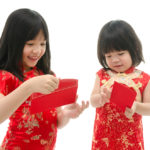
Teaching children about culture, whether it’s their root or not, gives them a taste of what life is like for people of different cultures. This helps children to be more open in embracing and accepting the diversity in cultures and traditions.
Chinese New Year is always full of fun, good food and lots of laughter. It is also very important for parents to teach children about the different customs, foods, traditions and the general do’s and don’ts associated with Chinese New Year.
Here are some interesting traditions and insights on what to do and not to do during Chinese New Year.
Chinese New Year Traditions: What to DO during Chinese New Year
1. Unite over glorious food
Reunion dinner is a symbol of togetherness and a great start to the year with the family. Every family member, near or far, are expected to return home to feast and celebrate the joyous occasion together. Reunion dinner reminds and reaffirms the love and respect that binds the family together as one.
2. Before midnight strikes
Sweep, mop, vacuum, scrub and declutter before the stroke of midnight on Chinese New Year. These are to sweep away the bad luck. Start the spring cleaning early, don’t sweep your luck and wealth away on the first day of Chinese New Year.
3. Keep the eyelids up
Bid farewell to the old year away and welcome the new year by staying up past midnight on the eve of Chinese New Year. It is believed that the longer the children stay awake, the longer their parents will live.
4. New Clothes
Wearing new clothes symbolises a new start and fresh hope for the new year. Red is the colour that is associated with being auspicious. The Chinese believe wearing red or bright coloured clothes can scare the evil and bad fortune away. Avoid black and white as they are symbolic colours of bad luck and mourning.
5. Everyone’s birthday
The seventh day of Chinese New Year is known as “Ren Ri “, which means birthday for everyone. Chinese across the world celebrate by eating ‘Tang Yuan” (glutinous rice ball) or tossing “Yu Sheng” (raw fish salad) platter. The higher you toss, the more the wealth and the higher the chance of all your wishes coming true.
What NOT to do during Chinese New Year
1. Don’t lose the cool
Don’t scold or argue, especially on the first day of Chinese New Year. It will translate to frequent episodes of arguing and scolding throughout the year. And yes, that includes not scolding the children or debating with your spouse.
2.Don’t empty the rice jar
No empty rice jar on Chinese New Year eve. An empty rice jar is a bad omen and the family will starve in the new year. A jar filled with rice presumably assures healthy finances.
3.No naps
Taking an afternoon nap on the first day of Chinese New Year indicates laziness for the year. Don’t risk your work performance bonus.
4.Don’t borrow or lend
Money, that is. Don’t borrow or lend money during Chinese New Year.
Clear all debts before the new year rolls in and start the year fresh with finances. Don’t demand money from others who owe you. It is unlucky to do so.
5.Don’t greet on bed
Excited kids who rise early may intrude their parents’ room to give New Year’s greetings while they are still in the bed. Doing so is said to lead to that person lying in bed sick for the whole year. F
or the sake of health, rise earlier than your kids.
Read also: CNY Traditions Observed by the Different Dialect Groups in Singapore
Having mentioned on what to do and not to do during Chinese New Year, there is a visible dilution or disregard of the olden Chinese New Year traditions and customs by the younger generation when they progress into the lifestyle of modern living. It is more important that they acknowledge the importance of these traditions and customs, although they may choose to celebrate the festival differently from the traditional way.
Don’t be too bewildered with what to do and not to do during Chinese New Year. Fact or myth is not one worth conflicting over. Being less superstitious is one great way to work around the don’ts.
It is essentially more important to focus on retaining family, kinship and values such as respect for parents and elders. The spirit of Chinese New Year should always preserve the value of strengthening relationships and spending joyful time with family and friends.























